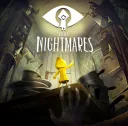Fitness and Health Apps: Fads or the Future of Wellness?
Jan-24-2024

In today's fast-paced, digitally-driven world, the health and fitness industry has witnessed a remarkable transformation. The surge of fitness and health apps has driven a significant part of this change. As smartphones become increasingly ingrained in our daily lives, the question arises: Are these apps mere fads or the cornerstone of future wellness strategies?
The Rise of Fitness and Health Apps
The last decade has seen an explosive growth in the use of fitness and health apps. From simple step counters to sophisticated health monitoring platforms, these apps promise to make wellness accessible, affordable, and personalized. The COVID-19 pandemic further accelerated this trend, as lockdown measures pushed individuals to seek digital solutions for maintaining physical and mental fitness.
Understanding the Appeal
At the heart of the popularity of fitness and health apps is convenience. Users enjoy the ability to track their progress, set health goals, and access workout plans from the comfort of their homes. Moreover, these apps often incorporate gamification elements, offering rewards and challenges that make health routines feel less daunting and more engaging.

Beyond convenience, personalization plays a crucial role. With the help of artificial intelligence and data analytics, these apps can tailor recommendations and routines to fit individual needs, preferences, and constraints. Such personalized guidance was once the realm of personal trainers and dieticians but is now made accessible to the wider public through these digital platforms.
Evaluating the Impact on Health and Wellness
The effectiveness of fitness and health apps has been the subject of numerous studies. Research indicates that these tools can indeed motivate individuals to lead healthier lifestyles. They offer accountability and visible progress tracking that many find valuable in maintaining consistency and commitment toward their health goals.
![]()
Furthermore, health apps have played a pivotal role in democratizing wellness. Regardless of geographical location, economic status, or fitness level, these apps provide a wealth of resources for anyone with a smartphone. This inclusivity has opened up opportunities for many previously excluded from traditional fitness and health avenues.
The Challenges and Criticisms
Despite their benefits, fitness and health apps are not without criticism. Privacy concerns stand at the forefront, with users wary of how their sensitive health data is used and stored. Additionally, the accuracy of data collected by these apps has been questioned, as discrepancies can occur depending on the device used and the nature of the data being tracked.
Another point of contention is the potential for information overload and the promotion of unrealistic health goals. Users may feel overwhelmed by the sheer volume of health advice available or disheartened by goals that are not attainable or healthy for their specific situation. Thus, while these apps can motivate, they can also inadvertently contribute to stress and anxiety about health.
The Future Landscape of Fitness and Health Apps
As technology continues to evolve, so too will the features and capabilities of fitness and health apps. Advancements in wearable technology, augmented reality (AR), and virtual reality (VR) are expected to deepen the immersion and effectiveness of these apps. Imagine, for instance, a VR fitness app that transports users to virtual environments for their workouts, making exercise an exciting adventure.
Integration with healthcare systems is another promising development. Some apps are already capable of sharing data with healthcare providers, allowing for more informed and timely medical advice. As these integrations become more seamless, the role of fitness and health apps in preventive healthcare and chronic disease management will become increasingly significant.
![]()
Customization and artificial intelligence will likely reach new heights, delivering even more personalized health and wellness guidance. These advancements will further blur the lines between digital and physical healthcare, offering holistic wellness solutions that are finely tuned to each individual’s needs.
Conclusion: A Balanced Perspective
Considering the advancements, benefits, and concerns surrounding fitness and health apps, it's clear that they are more than just fads. They represent a significant shift towards more accessible, personalized, and engaging wellness solutions.
However, it's important to approach these digital tools with a balanced perspective. While they offer incredible opportunities for enhancing health and wellness, they should complement, rather than replace, professional medical advice and the inherent value of physical human interaction in fitness and health regimes.
In conclusion, fitness and health apps are pivotal in evolving wellness strategies as we look towards the future. If managed thoughtfully and innovatively, their continued development can revolutionize how we approach health and fitness.







